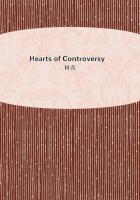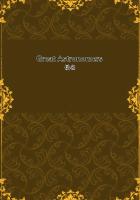Soc. Whether the rhetorician is or not inferior on this account is a question which we will hereafter examine if the enquiry is likely to be of any service to us; but I would rather begin by asking, whether he is as ignorant of the just and unjust, base and honourable, good and evil, as he is of medicine and the other arts; I mean to say, does he really know anything of what is good and evil, base or honourable, just or unjust in them; or has he only a way with the ignorant of persuading them that he not knowing is to be esteemed to know more about these things than some. one else who knows? Or must the pupil know these things and come to you knowing them before he can acquire the art of rhetoric? If he is ignorant, you who are the teacher of rhetoric will not teach him-it is not your business; but you will make him seem to the multitude to know them, when he does not know them; and seem to be a good man, when he is not. Or will you be unable to teach him rhetoric at all, unless he knows the truth of these things first? What is to be said about all this? By heavens, Gorgias, I wish that you would reveal to me the power of rhetoric, as you were saying that you would.
Gor. Well, Socrates, I suppose that if the pupil does chance not to know them, he will have to learn of me these things as well.
Soc. Say no more, for there you are right; and so he whom you make a rhetorician must either know the nature of the just and unjust already, or he must be taught by you.
Gor. Certainly.
Soc. Well, and is not he who has learned carpentering a carpenter?
Gor. Yes.
Soc. And he who has learned music a musician?
Gor. Yes.
Soc. And he who has learned medicine is a physician, in like manner?
He who has learned anything whatever is that which his knowledge makes him.
Gor. Certainly.
Soc. And in the same way, he who has learned what is just is just?
Gor. To be sure.
Soc. And he who is just may be supposed to do what is just?
Gor. Yes.
Soc. And must not the just man always desire to do what is just?
Gor. That is clearly the inference.
Soc. Surely, then, the just man will never consent to do injustice?
Gor. Certainly not.
Soc. And according to the argument the rhetorician must be a just man?
Gor. Yes.
Soc. And will therefore never be willing to do injustice?
Gor. Clearly not.
Soc. But do you remember saying just now that the trainer is not to be accused or banished if the pugilist makes a wrong use of his pugilistic art; and in like manner, if the rhetorician makes a bad and unjust use of rhetoric, that is not to be laid to the charge of his teacher, who is not to be banished, but the wrong-doer himself who made a bad use of his rhetoric-he is to be banished-was not that said?
Gor. Yes, it was.
Soc. But now we are affirming that the aforesaid rhetorician will never have done injustice at all?
Gor. True.
Soc. And at the very outset, Gorgias, it was said that rhetoric treated of discourse, not [like arithmetic] about odd and even, but about just and unjust? Was not this said?
Gor. Yes.
Soc. I was thinking at the time, when I heard you saying so, that rhetoric, which is always discoursing about justice, could not possibly be an unjust thing. But when you added, shortly afterwards, that the rhetorician might make a bad use of rhetoric I noted with surprise the inconsistency into which you had fallen; and I said, that if you thought, as I did, that there was a gain in being refuted, there would be an advantage in going on with the question, but if not, I would leave off. And in the course of our investigations, as you will see yourself, the rhetorician has been acknowledged to be incapable of ****** an unjust use of rhetoric, or of willingness to do injustice. By the dog, Gorgias, there will be a great deal of discussion, before we get at the truth of all this.
Polus. And do even you, Socrates, seriously believe what you are now saying about rhetoric? What! because Gorgias was ashamed to deny that the rhetorician knew the just and the honourable and the good, and admitted that to any one who came to him ignorant of them he could teach them, and then out of this admission there arose a contradiction-the thing which you dearly love, and to which not he, but you, brought the argument by your captious questions-[do you seriously believe that there is any truth in all this?] For will any one ever acknowledge that he does not know, or cannot teach, the nature of justice? The truth is, that there is great want of manners in bringing the argument to such a pass.
Soc. Illustrious Polus, the reason why we provide ourselves with friends and children is, that when we get old and stumble, a younger generation may be at hand to set us on our legs again in our words and in our actions: and now, if I and Gorgias are stumbling, here are you who should raise us up; and I for my part engage to retract any error into which you may think that I have fallen-upon one condition:
Pol. What condition?
Soc. That you contract, Polus, the prolixity of speech in which you indulged at first.
Pol. What! do you mean that I may not use as many words as I please?
Soc. Only to think, my friend, that having come on a visit to Athens, which is the most free-spoken state in Hellas, you when you got there, and you alone, should be deprived of the power of speech-that would be hard indeed. But then consider my case:-shall not I be very hardly used, if, when you are ****** a long oration, and refusing to answer what you are asked, I am compelled to stay and listen to you, and may not go away? I say rather, if you have a real interest in the argument, or, to repeat my former expression, have any desire to set it on its legs, take back any statement which you please; and in your turn ask and answer, like myself and Gorgias-refute and be refuted: for I suppose that you would claim to know what Gorgias knows-would you not?
Pol. Yes.
Soc. And you, like him, invite any one to ask you about anything which he pleases, and you will know how to answer him?
Pol. To be sure.
Soc. And now, which will you do, ask or answer?














